Does Composting Kill Aphids? 4 Questions to Consider
If you like to garden, you’ve probably thought a bit about composting. Maybe you even have a compost bin or two on your property.
What’s nice about composting is the ability to transform household scraps and garden plants into beautiful, nutrient-rich soil amendments that can be added to your in-ground garden, raised beds, or containers.
But what should you do when it’s time to rip up and compost bug-infested plants? If you’ve seen aphids on your plants, can you put them in the compost? Will aphids survive composting?
Composting will kill both aphids and their eggs but only if the compost pile gets hot enough, with temperatures in excess of 120℉ (48.9℃). A cold or warm compost pile won’t kill aphids and might even provide a safe environment for further reproduction and egg laying.
Aphids can survive in cold weather–and some species are able to stay alive in winter relatively well, especially in their larval stage–but aphids typically prefer mild, warm-ish weather. They’ll be most active and prolific when temperatures outside are between 65℉ and 80℉ (18.3℃ and 26.7℃).
In fact, although aphids don’t often thrive when temperatures get above 90℉–which is pretty typical in July, August, and September here in North Texas–I’ve seen them maintain their populations through the hot summer months, then get very active again once late September or early October arrives and temperatures dip back down to more temperate levels.
For these reasons, you’ll need to take special care when it comes to composting aphid-infested plants.
Below, I’ve listed several important questions to ask yourself before composting plants with aphids on them, but here’s a general rule to follow: If you’re not sure whether your compost is hot enough to kill aphids, you’re better off throwing the plants away, not composting them.
I prefer to compost as much as possible so that none of that organic material goes to waste, but the last thing I want to do is to give aphids an even stronger foothold in my garden.
Before I go on, here’s an important question: Are you able to test the temperature of your compost pile? If not, here’s my recommended gear for doing so:
- 16-Inch Compost Thermometer: REOTEMP
- 20-Inch Compost Thermometer: Cate’s Garden
- 24-Inch Compost Thermometer: REOTEMP
- Heavy-Duty Long Gardening Gloves: Slarmor Gauntlet
Can I Put Aphid-Infested Plants in Compost?
At the bottom of this article, I’ve include a graph that’ll help you determine whether or not to compost aphid-infested plants, but before making a final decision, I think it’s helpful to ask yourself these 4 questions:
What Time of Year Is It?
If you know a bit about where aphids come from, this question makes a lot of sense. Aphids reproduce parthenogenetically–that is, female aphids can reproduce asexually during the spring and summer months. As a result of this process, female aphids end up giving live birth to more female aphids (both wingless and winged), who’ll continue the cycle until summer gives way to fall.
As cooler weather arrives, female aphids begin producing both males and females, initiating the stage of the annual aphid life cycle that involves sexual reproduction. But when this happens, female aphids no longer give live birth to more female aphids. They instead produce eggs that enable the aphid population to survive harsh temperatures and return again come spring.
This is why you’ve got to consider the time of your when deciding whether or not to compost plants with aphids. Adults and nymphs are not as cold or heat tolerant as eggs, so if I’m on the fence about composting an aphid-infested plant, I’ll feel more comfortable doing so earlier in the year since I know I’m not unintentionally putting egg-infested plants in my compost.
The last thing I want is for aphid eggs to overwinter in my compost pile because I placed them there too late in the season and they managed to survive until spring.
What Kinds of Plants Are Infested?
I’m interested in this question not because it has any bearing on whether or not aphids will survive your compost pile but on whether you’re getting the most from your efforts and whether it’s even worth it to try composting your aphid-infested plants.
Here’s my rule of thumb: If the plant is woody (like okra) or a vine (like malabar spinach), has thick branches (like eggplant), or is prone to disease (like tomatoes), these should never be composted if aphids are involved.
In short, there’s very little upside to doing so, and there are plenty of reasons why this might not produce the best results. Woody plants, vines, and those with thick branches will eventually decompose, but unless you’ve cultivated a consistently hot compost pile, this process will take a very long time, likely a year or longer. If aphids are involved, you’re better off just throwing these plants away.
Other plants–such as cucumbers, potatoes, tomatoes, and peppers, to name a few–are already prone to disease and should only be composted if you’re absolutely sure the plant is healthy but has reached the end of its natural life cycle. If aphids are involved, this adds one too many risk factors for my comfort, so I toss the plants in the trash even if they look healthy.
How Bad Is My Infestation?
Aphids are prolific pests, and the green ones tend to camouflage themselves pretty well and blend in with many garden pests.
I was amazed to see how many aphids could hide themselves on a single aphid flower or on the underside of 1 kale leaf. I’m not talking about 10 or 20 aphids. I’m talking about 50, 75, or even 100+ of them.
Female aphids can produce 10-12 aphids per day and 50-100 during the course of their short lifetimes. If you place hundreds of aphids in your compost pile, and you’re not absolutely sure that the pile is going to kill them off, you’re better off throwing the plant away or burning it (if you live in a rural area). If not, you could give them the time and space they need to multiply beyond the initial infestation.
How Hot Is My Compost?
This is the most important question to consider when determining whether or not to compost an aphid-infested plant. Have you tested your compost? If so, how consistently hot is it?
Research shows that aphids densities often decrease when temperatures get higher than 80℉ (26.7℃). What happens is that aphids’ so-called thermal tolerance starts to dissipate the hotter it gets, and their ability to reproduce decreases in like fashion. This means that aphids can survive in hotter temperatures, but many of them will be rendered infertile if temperatures get too hot for their tolerance levels.
The nice thing about compost piles that are at or above 120℉ (48.9℃) is that you’re not having to make these do-I-or-don’t-I decisions. Hot compost piles will kill all aphids–adults, nymphs, and eggs alike. None will survive, assuming they’re close to the heat and not simply placed on the outer edge of the pile.
Will Aphids Die in Compost?
As I’ve suggested above, if you’ve got a hot compost pile above 120℉ (48.9℃), then composting is a great way to convert garden material into soil amendments. But what if your compost is hot but not that hot? What should you do in some of these outlier scenarios??
Here are some general suggestions to follow when it comes to the temperature of your compost pile. Gardeners tend to refer to compost in terms of whether it’s “cold” or “hot,” but I thought I’d break these categories down further to help you think through whether or not you should compost your plants.
| Compost Type | Compost Temperature | Outcome |
|---|---|---|
| Cold | 65℉ (18.3℃) | No |
| Warm | 65-80℉ (18.3-26.7℃ | No |
| Very Warm | 81-100℉ (27.2-37.8℃) | No |
| Mildly Hot | 101-110℉ (38.3-43.3℃) | Spring Only |
| Moderately Hot | 111-120℉ (43.9-48.9℃) | Spring & Summer Only |
| Hot | Above 120℉ (48.9℃) | Yes |
As you can see, things aren’t as cut-and-dry when you’ve got a mildly hot (but not officially hot) compost pile. There’s just not telling what might happen if you put an aphid-infested plant in there.
Given what we know of the aphid life cycle, if you’re composting a plant that you’ve pulled up in spring or early summer, you’re at very little risk of accidentally placing aphid eggs in your compost. The aphids haven’t begun producing them yet, so composting aphids in a less-than-hot compost pile is less risky than doing so come fall.
If you’re confident that you’ve got a compost pile that’ll push the aphids beyond their thermal tolerance limits, then go ahead and compost regardless of your aphid infestation. But if you’re at all concerned about whether or not your compost is hot enough–or if it’s later in the year and thus closer to the time when aphids begin producing eggs–you’re better off playing it safe.
Additional Resources
I’ve been writing about aphids for several months, trying to share all I know about them with others who are dealing with these pests and looking for answers to common questions.
If you’re interested in learning more about aphids, check out these additional resources:
- Are Aphids Harmful to Humans? Things You Should Know
- Are Aphids Poisonous?
- Are Aphids Safe to Eat? Handling Aphid-Infested Vegetables
- Can Plants Recover from Aphids? Tips to Save Your Plants
- Can You See Aphids on Plants? Spotting Early Infestations
- Should I Throw Away a Plant with Aphids? Things to Consider
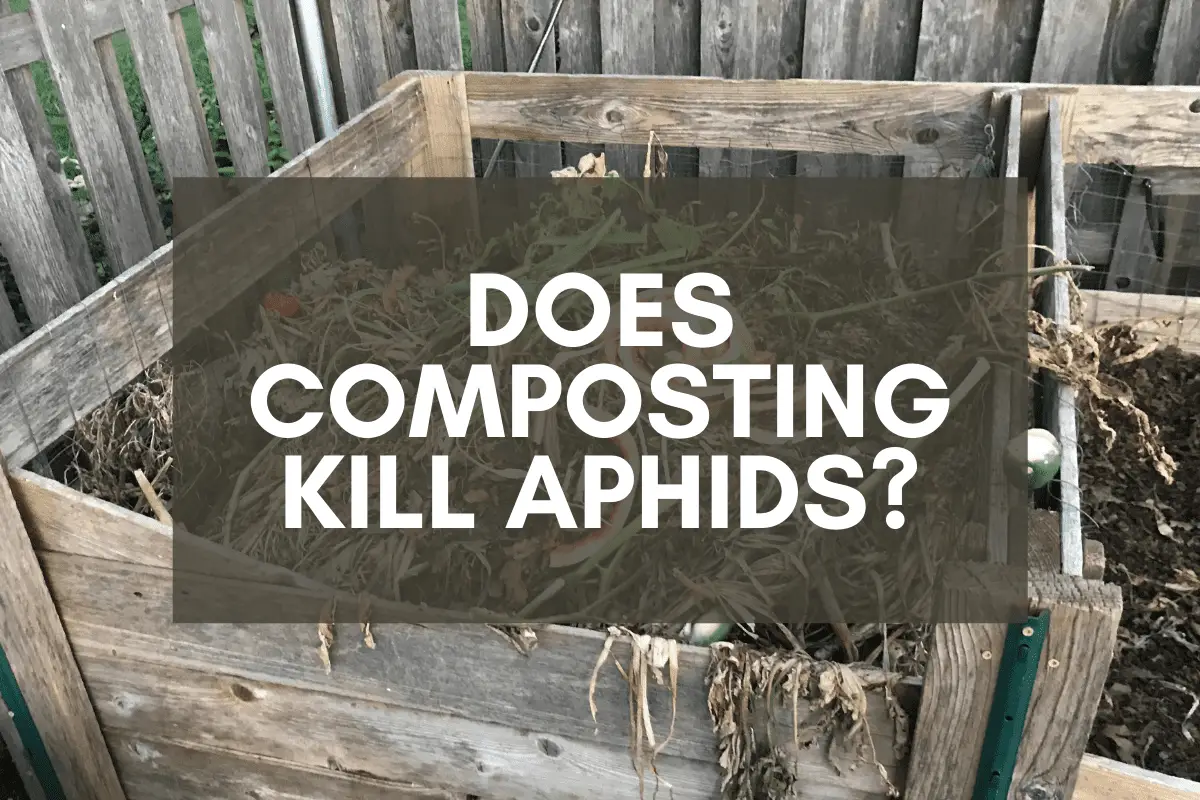
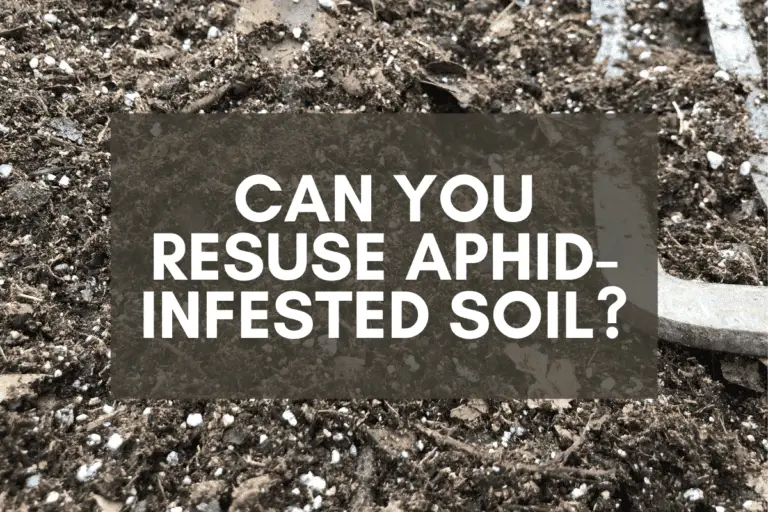
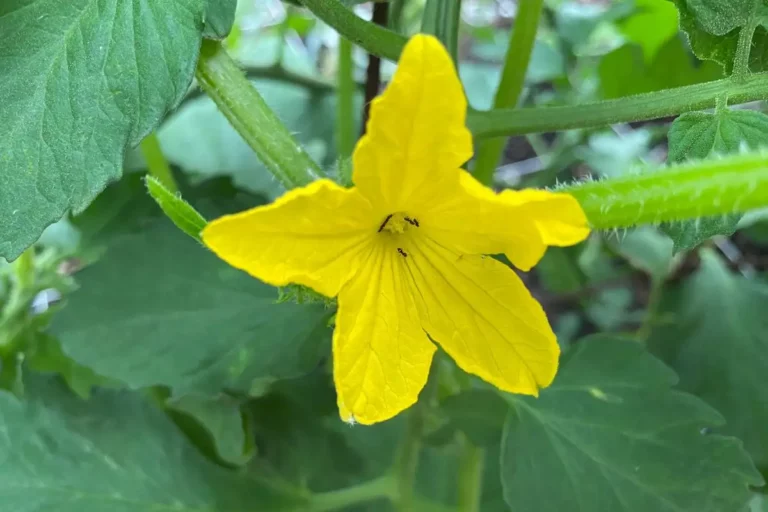
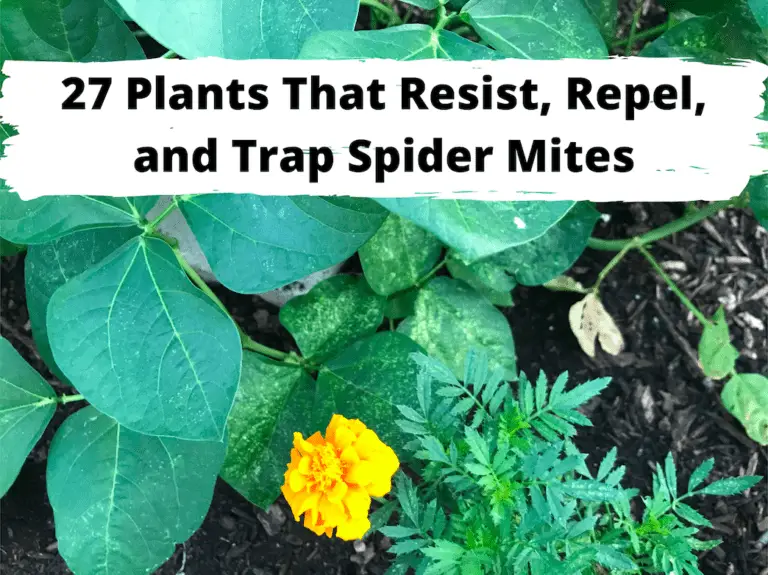
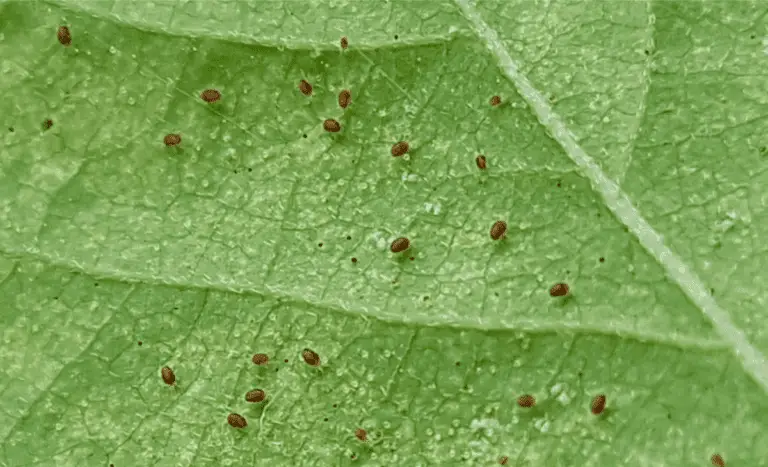

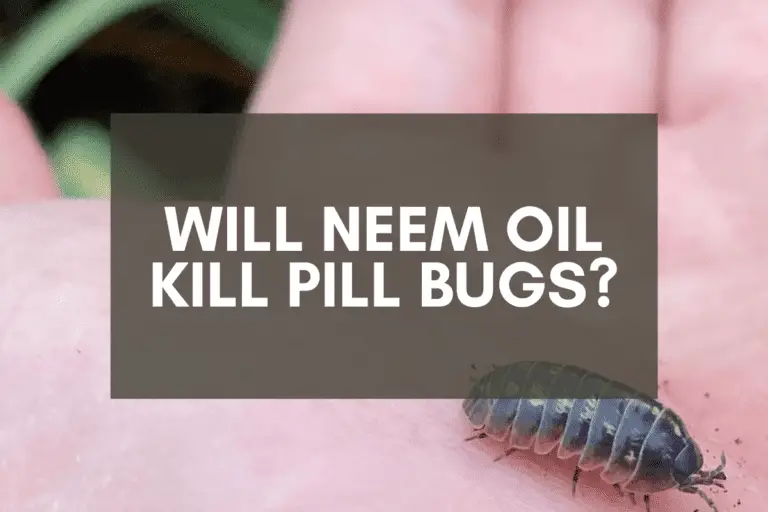
How about aphids in a worm composting situation? Will the worms take them out?
This was a really informative article. It is near Thanksgiving and I have been battling aphids here on the patio of our “over 55” apartment. Hard to give up my garden but I am 80 this year coming up. I have a compost bin started at the home of our son and his wife. It will be for worm composting when I have collected enough kitchen scraps for them. I think I am going to trash this year’s aphid infested pots.
Thank you!
Hi Maggie, I’d suggest trashing this year’s infested plants since you’ve been battling aphids for so long. This coming year, I’d recommend having a little bottle of soapy water spray handy on your patio. When you first notice signs of aphids, spray the plants thoroughly once a day for 5-7 days in a row to make sure you get them all. I love that your son and daughter-in-law are composting. It’s the best way to get rid of kitchen scraps and improve your soil!